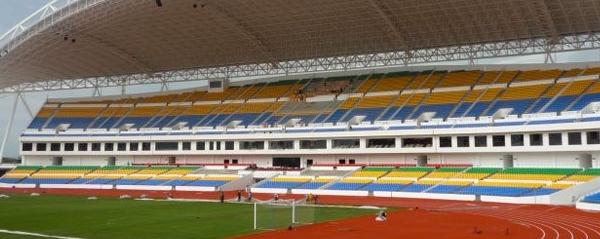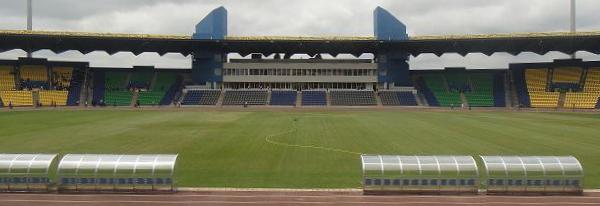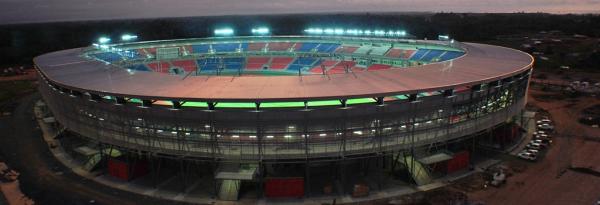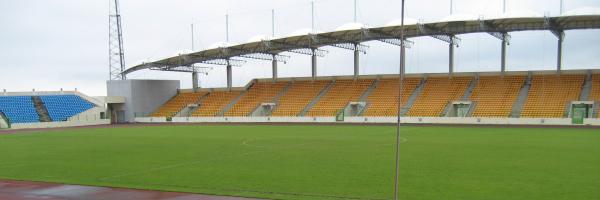
Tomorrow, the 28th edition of the Africa Cup of Nations will start with the opening match between Equatorial Guinea and Libya. For the former it will be the first showing at an Africa Cup, which is primarily because they are co-hosting the event with Gabon, who have more of a record having made the quarterfinals in 1996.
Both countries, pegged against the west coast of Africa, are relatively small, with Gabon’s population about 1.5 million and Equatorial Guinea not even making a million, and would likely not be able to host the tournament on their own.
The matches will be played at four venues, which does not seem a lot, but has not been that uncommon in recent editions of the Africa Cup. Both countries will provide two venues, with the final being played in Gabon, the larger of the two countries.
More specifically, the final will be played in Libreville, the capital and largest city of Gabon, at Stade d’Angondjé. Stade d’Angondjé is a newly built stadium with a capacity of 40,000 seats. The stadium was financed with Chinese loans, and built by Chinese company Shanghai Construction.
The stadium officially opened on the 27th of November 2011 with a match between the Gabon and Chinese under-20s. A few weeks earlier a friendly between the Gabon and Brazil national teams had already been played at the stadium (0-2). The stadium has the athletics tracks typical for most African stadiums, and seemed to suffer from a particularly bad pitch during the Brazil match.
Watch the match highlights here: Gabon 0-2 Brazil
Apart from the final, the stadium will also host one of the semi-finals and a quarter-final. It will furthermore host all but one of the group matches in Gabon’s group C

The second Gabon playing venue is the Stade de Franceville, in the town of Franceville in the far east of Gabon. The Stade de Franceville has almost completely been rebuilt from the 10,000-seadium it was before. It now has a capacity of 25,000 seats, which is half of the total population of the town of Franceville. The stadium was the last of the four venues to be opened with a friendly match between Gabon and Sudan last Monday.
The Stade de Franceville will host all but one of the matches in Ghana’s group D, as well as one Gabon group match. It will furthermore host one quarter-final.

Equatorial Guinea’s chosen playing venues lie in Bata, the country’s largest city, and Malabo, the capital.
Estadio de Bata is the largest of the two, and will therefore host the second semi-final, as well as a quarter-final, and all but one match in Equatorial Guinea’s group A. It is also the stadium where the opening match will be played.
Estadio de Bata reopened on the 6th of January with a friendly match between Equatorial Guinea and South Africa. The original stadium was built in 2007, but has now been extensively renovated, and expanded from a capacity of 22,000 to 35,700.

The last stadium is the Estadio de Malabo in capital Malobo, which is actually located on an island off the coast from Cameroon. The stadium has been the host of the Equatorial Guinean football team since it got built in 2007. The stadium can hold a modest 15,250 fans, and will host all but one match in Côte d’Ivoire’s group B, as well as a quarter-final and the match for third place.
Photo 1: Stade d’Angondjé | Via Mountakhab.net
Photo 2: Stade de Franceville | © Les-pantheres.com
Photo 3: Estadio de Bata | Via Mountakhab.net
Photo 4: Estadio de Malabo